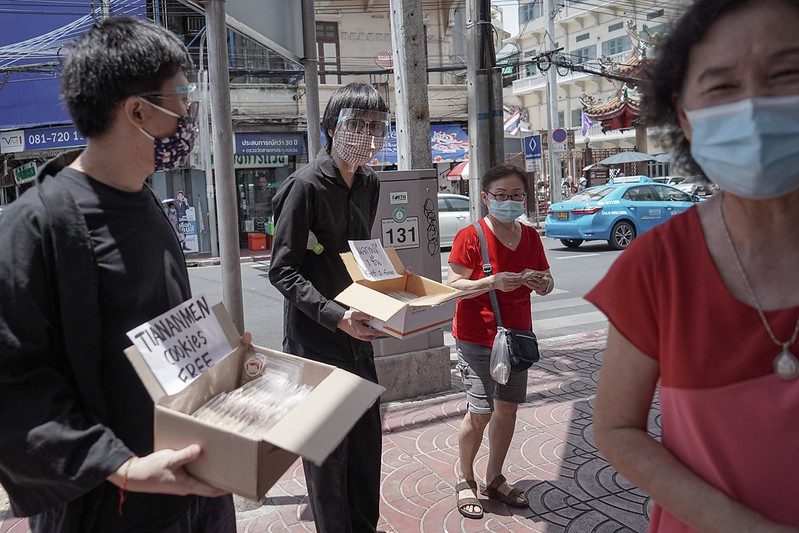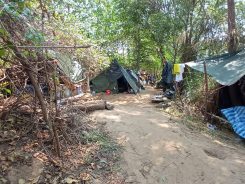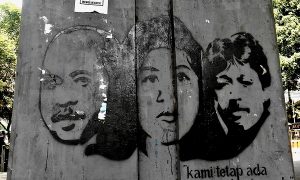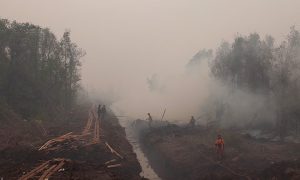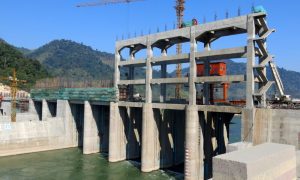In cooperation with the convenor, Nhu Truong, New Mandala is pleased to share a series of articles based on papers presented at the People’s Power and Resistance in Southeast Asia Roundtable at the 35th Biennial Conference of the Canadian Council for Southeast Asian Studies. You can read all of the articles here.
The #MilkTeaAlliance Movement came about when Hong Kong, Taiwan and Thai netizens banded together in response to the harassment of two Thai celebrities accused, by nationalistic Chinese internet users, of supporting Hong Kong and Taiwanese independence. This meme-war-turned-movement has since expanded, transcending national and linguistic borders. Yet, as leading social movement scholars Erica Chenowth and Zeynap Tufekci argue, the digital playing field is tilted toward authoritarians. The political situation in countries where the #MilkTeaAlliance originated has remained dismal and worsened for some more than a year later. Is digital activism still cogent and worthwhile for social movements under authoritarian regimes?
International media was quick to laud the #MilkTeaAlliance as an innovation to “beat China’s online army” and fight against authoritarianism. While there has been much optimism about online activism such as the Arab Spring, disappointment has followed as authoritarian leaders responded by consolidating power. This results in authoritarian resurgence and state failure.
Following the dissent in Hong Kong, Thailand and Myanmar, the political landscapes in the three places has deteriorated. The implementation of the National Security Law has amounted to a multifront attack on Hong Kong’s political rights and civil liberties. Thai authorities weaponised lèse-majesté to target protest leaders. The military government in Myanmar has doubled down on its repression of dissenting voices, with the toll of arrests and killings has skyrocketed since the coup. According to the 2022 V-Dem report, all three nations are increasingly autocratic.
It is premature to conclude that digital activism is futile, as it takes more than digital mobilisation to change the existing power structure. The better question would be why do protesters still tap into digital activism? What do these contentious repertoires offer activists under authoritarian regimes?
While scholars and practitioners emphasise the attainment of goals (policy gain and change) in measuring movement success, it is pertinent to also consider the sustainability of the movement as a goal in itself. For instance, many of the Hong Kong protesters in the 2019 Anti-ELAB movement were initially politically activated through their participation in the 2014 Umbrella Movement. Biographical consequences of activism extend beyond the impact on the activist’s personal life to include effects on the broader culture.
Myanmar CSOs have experience providing aid in the border areas and social capital with the war on community.
Effective third-sector actors in aid on the Thailand-Myanmar border
The #MilkTeaAlliance provides an impetus in cultivating a pan-Asian solidarity and has the potential to be a long-term transnational network building project that reshapes how citizens from the region forge a collective pro-democracy consciousness. The initial commonality activists shared centres around the frustration and threats many feel toward Beijing’s assertiveness in the region: China’s aggression in the South China Sea, its military tensions with Taiwan and India, and growing violations of Hong Kong’s autonomy.
As the alliance matures, its message has broadened to encompass pushback against authoritarian governments and demand for democratic reforms. The hashtag spiked when the Thai government cracked down on the student-led protests of 2020-2021. Similarly, #MilkTeaAlliance trended when Myanmar people took to the street protesting the military coup that ended the short span of Myanmar’s quasi-democracy. This perceived shared struggle for democracy fosters collective identity and reciprocal solidarity, which can increase the willingness to engage in more and even higher-risk activism.
Furthermore, solidarity that transgresses state borders, in which people speak for and support each other’s values, can also be seen in diaspora mobilisations. Those who have migrated out of authoritarian states into a democratic host country are granted political opportunities to advocate on behalf of their communities-of-origin, thus regaining their voice after exit. In a survey of Hong Kong Americans my colleague and I conducted in August, almost half of our respondents (585) reported participating in US-based activities such as joining a rally and donating to organisations/individuals that advocate for Hong Kong, and actively discussing Hong Kong issues online.
More so, offline mobilisations led by diaspora groups under the #MilkTeaAlliance movement have gone beyond homeland orientation. Not only advocating for political changes in their homeland, diasporic #MilkTeaAlliance activists also mobilise for the issues of other nations. For instance, Hong Kong, Myanmar, Thai and Taiwanese diaspora groups organised joint rallies in Washington DC and New York City to protest the Myanmar military coup. This outward diaspora activism, as proposed by Kennedy Wong, thus echoes the solidarity and reciprocity that has emerged in Asia while transnationally bridging diaspora groups to expand the movements’ network.
Movements that are unable to maintain some form of collective political identity will face decline and disintegration. The digital power #MilkTeaAlliance has galvanised a wave of transnational pro-democracy mobilisations, yet is too early to tell whether “milk tea is thicker than blood” (as in the Thai slogan), as collective identity needs to be continuously reaffirmed and renegotiated. The alliance needs to build infrastructure to facilitate further exchange and mobilisation, which may be the next challenge given the decentralised nature of the movement.
 Facebook
Facebook  Twitter
Twitter  Soundcloud
Soundcloud  Youtube
Youtube  Rss
Rss 